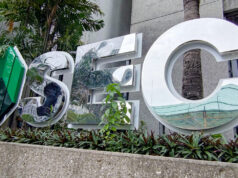Investors keen on PHL but seek stable rules, lower costs — Kearney

By Beatriz Marie D. Cruz, Reporter
FOREIGN INVESTORS are eager to tap into the growth potential of the Philippines but concerns over unpredictable regulations and high cost of energy and logistics persist, according to executives of global management consulting firm Kearney.
In an interview with BusinessWorld, Shigeru Sekinada, Kearney senior partner and region chair, Asia-Pacific, and managing director, Japan, said foreign investors are looking at the Philippines as they diversify their manufacturing operations.
“In this context, each country needs to have predictable rules, governance, laws, and so on. This kind of element is among the most important, for the long-term perspective is necessary for the manufacturing sector,” Mr. Sekinada said.
“If they decide to invest in a factory, and this factory needs to run maybe 10 years, 20 years, 30 years. So, this kind of long-term predictability is very important.”
Lowering the cost of doing business would also encourage more foreign investors to expand operations here, Mr. Sekinada said. He noted investors look at the cost of logistics and energy before investing in a country.
“If the country has low-cost energy, low-cost logistics infrastructure, surely outside companies will be able to consider the Philippines as the best location for the manufacturing sector,” he said.
Mr. Sekinada said the Philippines has the potential to attract Japanese investment in sectors such as manufacturing, energy, consumer goods and retail, and healthcare.
“As you know, Japan’s market is shrinking. On the other hand, your market is growing. That’s why Japanese companies tend to think about expanding their business in the consumer goods and retail sector,” he said.
The Philippines must also have a stronger intellectual property (IP) environment to ensure that foreign companies are protected and remain profitable, Mr. Sekinada added.
“For example, if a Japanese company enters a specific country, the local manufacturers would create an almost similar product. As a result, Japanese manufacturers’ profitability becomes the worst. That’s why some Japanese companies decide to close their business in that country,” he said.
In Kearney’s 2025 Foreign Direct Investments (FDI) Confidence Index emerging market rankings, the Philippines fell three spots to 16th out of 25 countries. The ranking is based on an economy’s likelihood of attracting FDIs in the next three years.
China, including Hong Kong, topped the emerging market rankings. The Philippines trailed behind Southeast Asian neighbors like Thailand (10th), Malaysia (11th), Indonesia (12th), but was ahead of Vietnam (19th).
The index showed that efficiency of legal and regulatory processes, as well as domestic economic performance, are the top two most important factors that foreign investors take into consideration before making investment decisions.
Kearney Senior Partner and Philippines Country Head Marco de la Rosa said investors also look at an economy’s level of technology and innovation, ease of bringing in and taking out capital, tax rates, and infrastructure quality.
“It’s not just what the country can offer, it’s how the country does business with investors,” Mr. De la Rosa told BusinessWorld.
“If we can somehow make it easier to do business here in the country, that’s the number one most attractive factor for investors… If we are a lot more transparent and a lot more predictable, then we have a pretty good fighting chance,” he said.
While the Philippines has existing policies to support investors like Republic Act No. 11032 or the Ease of Doing Business Act, Mr. De la Rosa said there is a need for better enforcement and implementation of existing laws.
“As a Filipino, what I would observe is we have the right laws, but it’s a very complex structure — there’s different levels of government, corporate organizations, and there’s public organizations,” he said. “How do you make sure that everybody complies with the law and also executes it very quickly?”
Mr. De la Rosa said removing restrictions on full foreign ownership of land is not necessarily needed to attract more FDIs as long as the country maintains a consistent and predictable business environment.
“Obviously, a totally free market where an investor can come in and own assets outright is easier because they feel that sense of control. But if you look at Indonesia, Vietnam, and other markets, they also don’t have 100% foreign investment laws,” he said.
“If you can’t give 100% or outright foreign ownership, as long as it’s predictable, enforceable, and consistent, then you’re probably okay,” he added.
GLOBAL UNCERTAINTY
The Kearney executive noted that global uncertainties present both a risk and an opportunity for countries to diversify their supply chains.
“In this era of uncertainty, there is a window of opportunity where the Philippines can invest and be a player in the game, but it’s a finite window, and we need to catch up,” Mr. De la Rosa said.
Last month, US President Donald J. Trump slapped a 19% tariff on exports from the Philippines, Cambodia, Malaysia, Thailand and Indonesia.
With this, the Philippines has “no choice but to diversify” its supply chains, Mr. De la Rosa said.
“It’s not like we have a zero track record on manufacturing. We have local manufacturers, food and others, here in the country, so there is a reason to believe that we can do it with the right focused investment,” he added.



